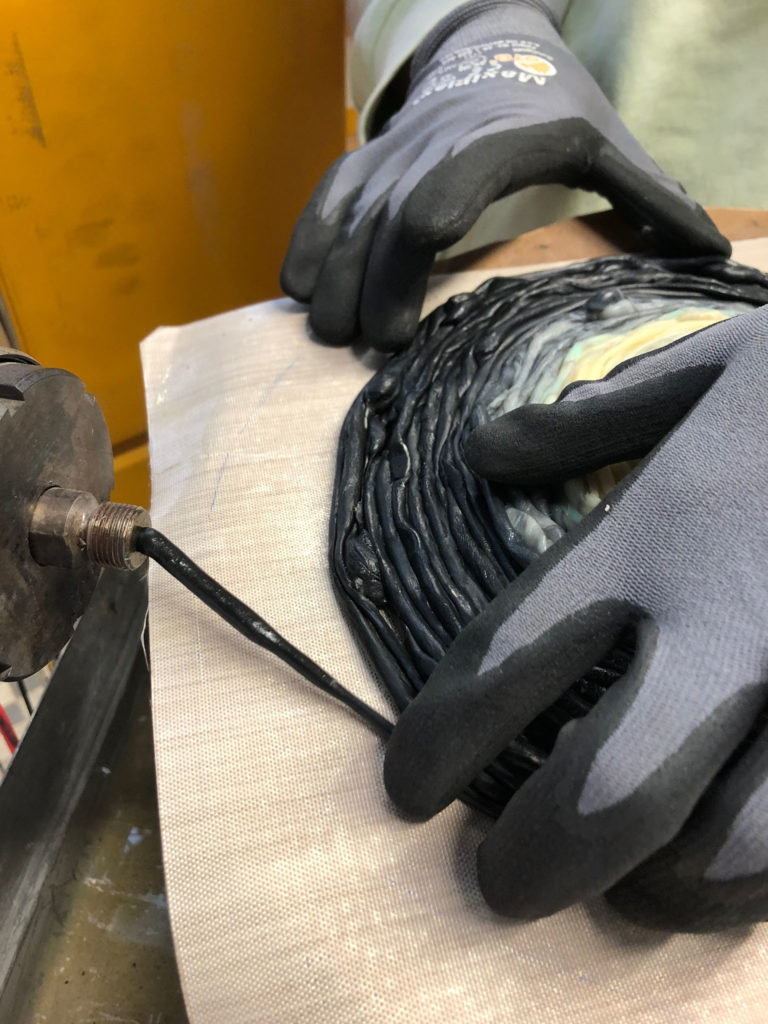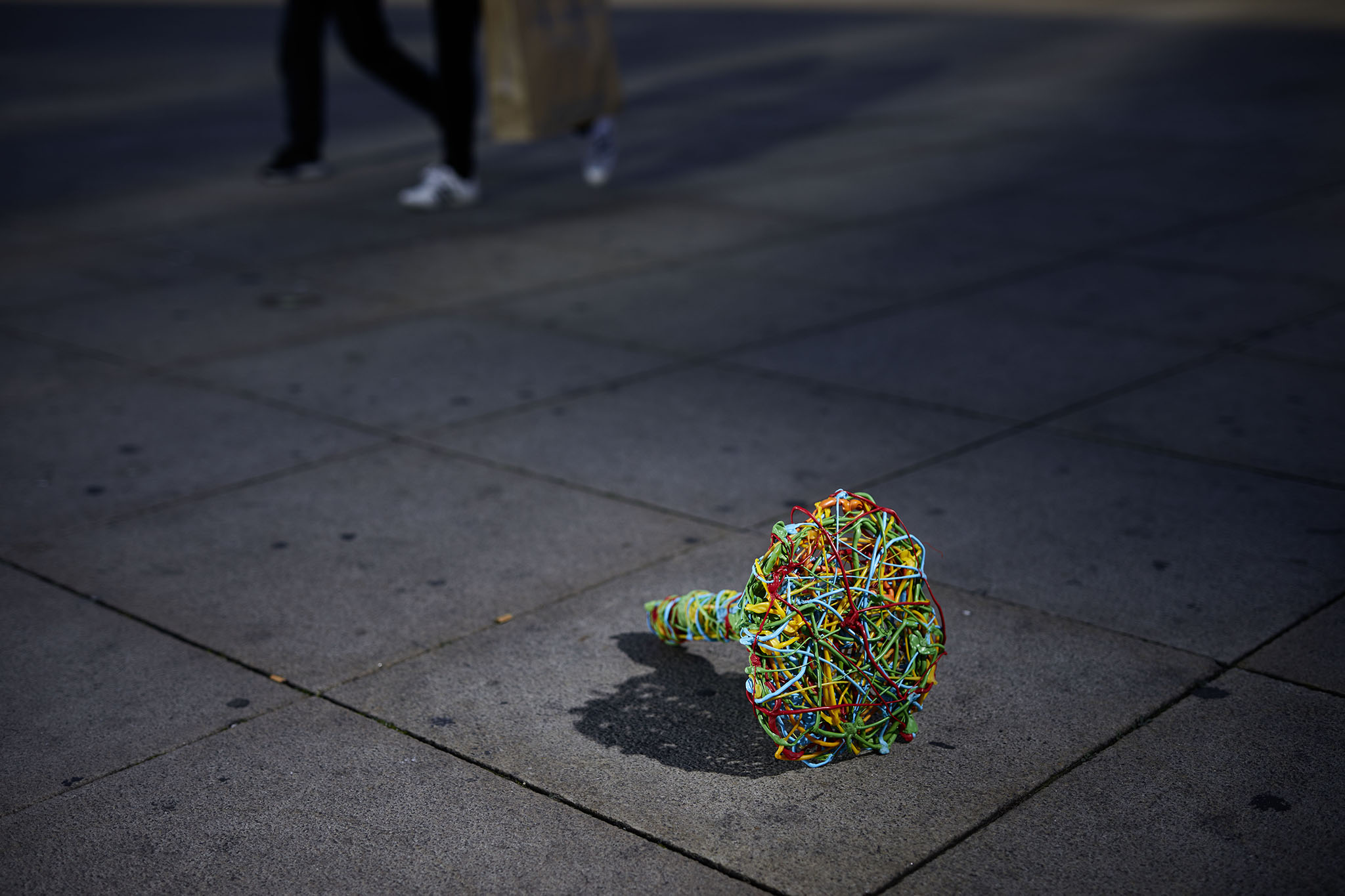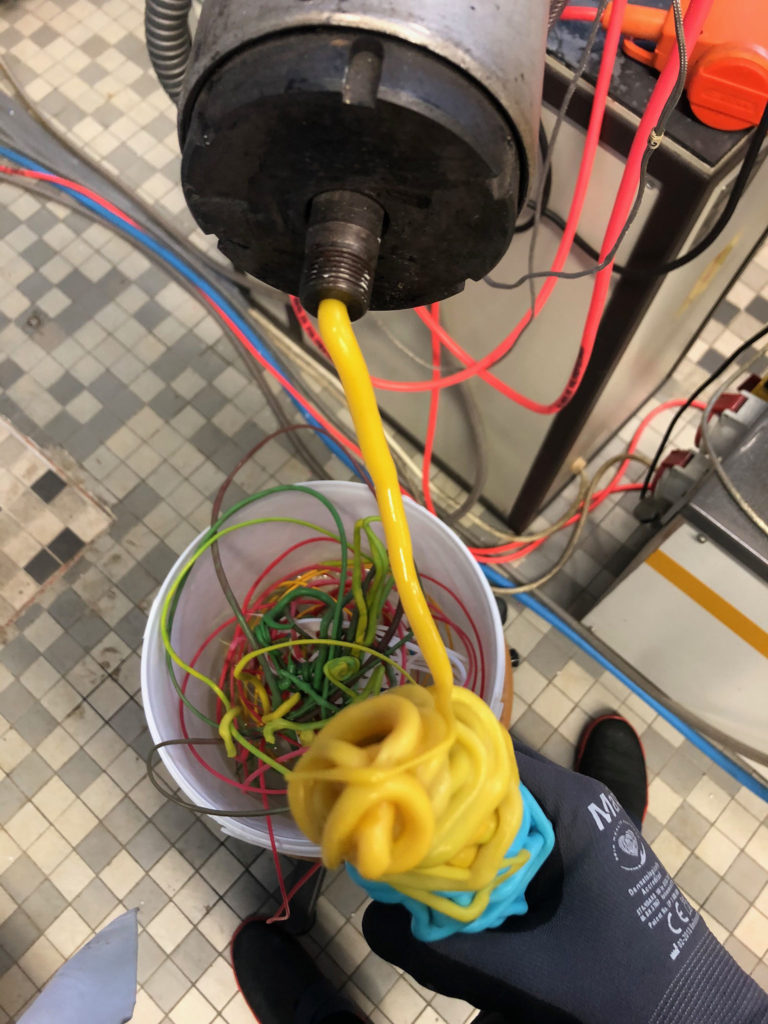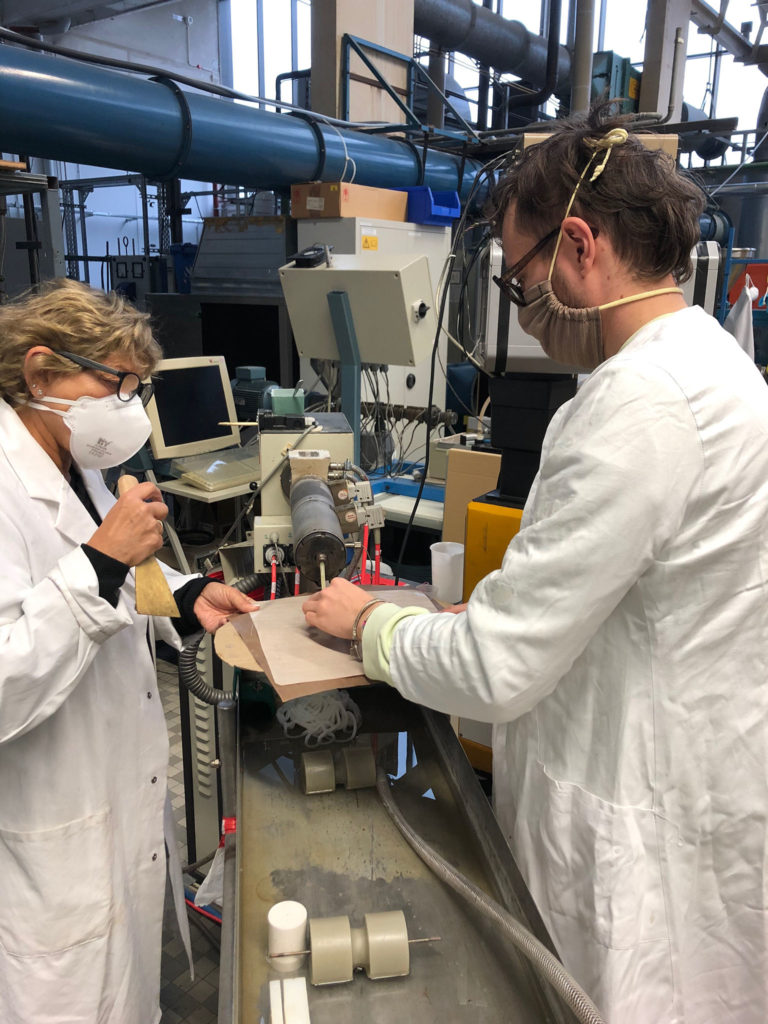GUM
Daniel Tratter
Daniel Tratter
2020

Supervisors_ Prof. Jozef Legrad, Prof. Holger Neumann, Anja Lapatsch
BA Graduation Project_ Daniel Tratter
BA Graduation Project_ Daniel Tratter
According to media reports, every German consumes around 100
chewing gums a year, resulting in a total consumption of 8 billion per
year. On the average, there are 80 chewing gums gluing on every square
meters of street in Germany. Removing them costs between 1 – 3 € per
piece because the „gum base“, the main ingredient of chewing gum,
consists mainly of petroleum-based plastic.
Therefore, chewing gum, like other plastic products, is not easily biodegradable (demonstrably needing several years).
So it´s a waste of resources that is both, harmful to the environment and expensive.
That was the starting point of my bachelor thesis „GUM“, which dealt with the development of a material from already used chewing gum.
The aim was to produce high-quality materials from chewed chewing gum as recycled plastic through modification and extrusion and then processing it further on. The chewed gum is re-integrated into an economic cycle so that the ingredients do not end up on the street and unnoticed.
The resulting material is used to develop everyday objects that, like chewing gum, sweeten the everyday life.
Therefore, chewing gum, like other plastic products, is not easily biodegradable (demonstrably needing several years).
So it´s a waste of resources that is both, harmful to the environment and expensive.
That was the starting point of my bachelor thesis „GUM“, which dealt with the development of a material from already used chewing gum.
The aim was to produce high-quality materials from chewed chewing gum as recycled plastic through modification and extrusion and then processing it further on. The chewed gum is re-integrated into an economic cycle so that the ingredients do not end up on the street and unnoticed.
The resulting material is used to develop everyday objects that, like chewing gum, sweeten the everyday life.
Text by Daniel Tratter







